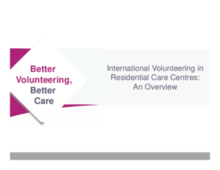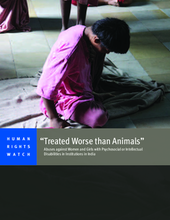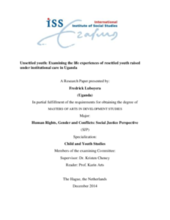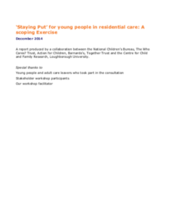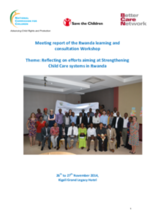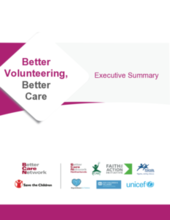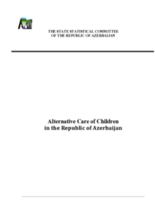Displaying 1151 - 1160 of 1510
This video, from Forget Me Not, features the story of Alisha, a young girl in Nepal who was separated from her family and taken to a children’s home in Kathmandu.
Anna McKeon, consultant for the Better Volunteering Better Care initiative, presented at a launch event of a new report on orphanage volunteering from Next Generation Nepal.
This report documents the involuntary admission and arbitrary detention of women and girls with mental health disabilities in mental hospitals and residential care institutions across India.
This study is purposely looking at issues around institutionalization and the experiences of resettled youth resulting from the social and economic challenges that affect them in independent living, tackling how they are negotiating and overcoming them.
This study explores the prevalence and multilevel risk factors of 1,309 Israeli Arab and Jewish adolescents’ experiences of unwelcome sexual behaviors by peers in residential care settings (RCSs) for at-risk children.
This paper reports the results of an international review of academic literature on sexual abuse in residential child and youth care, 1945–2011.
This report explores options for young people aging out of residential care (“care leavers”) and the potential challenges and costs of effective implementation of those options.
As part of the work of the BCN Eastern and Southern Africa Regional Initiative, the National Commission for Children in partnership with BCN, and Save the Children convened a national consultative workshop in Kigali, Rwanda on 26 and 27 November 2014. This report presents a summary of the main priority outcomes which were identified by participants during the meeting, including: evidence building and sharing, strengthening advocacy, and strengthening capacity.
This Excutive Summary is developed by the Better Volunteering Better Care
This report is prepared within the MONEE project of UNICEF Regional Office for CEE/CIS. It provides an overview of alternative care in Azerbaijan.

